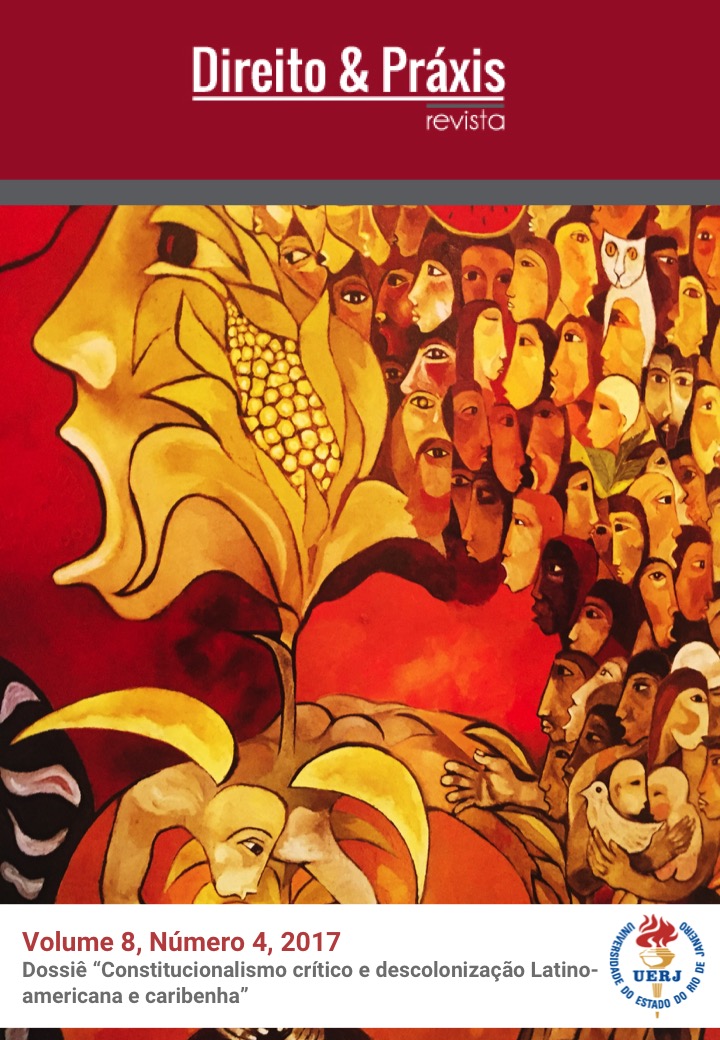Hacia una teoría no-colonial de derechos humanos / Towards a non-colonial human rights theory
DOI:
https://doi.org/10.12957/dep.2017.31228Keywords:
Derechos humanos, Pensamiento crítico, Universalismo, Pluralismo / Human rights, Critical thinking, Universalism, Pluralism.Abstract
DOI: 10.1590/2179-8966/2017/31228
Resumen
En el marco de los desafíos planteados por la necesidad de efectivación de un pluralismo jurídico que asuma la diversidad de constituye a nuestros pueblos, el texto se propone someter a crítica la narrativa liberal del universalismo de los derechos humanos, intentando identificar horizontes de diálogo en la búsqueda de referentes normativos válidos más allá de los contextos comunitarios específicos.
Palabras-clave: Derechos humanos; Pensamiento crítico; Universalismo; Pluralismo.
Abstract
Within the framework of the challenges posed by the need for an effective legal pluralism that englobes the diversity of our peoples, this paper seeks to criticize the liberal narrative of human rights’ universalism, looking to identify horizons for dialogue in the search for valid normative referents beyond community-specific contexts.
Keywords: Human rights; Critical thinking; Universalism; pluralism.
Downloads
Downloads
Published
How to Cite
Issue
Section
License
The authors the sole responsibility for their texts.
It is allowed the total or partial reproduction of the articles of the Journal Law and Praxis, if the author is mentioned.
This work is licensed under a Creative Commons Attribution-Noncommercial-Share Alike 4.0 Unported License.
This license allows you to copy and redistribute the material in any medium or format for any purpose, even commercial, provided the original authorship is cited.
This work is licensed under a Creative Commons Attribution 4.0 International License.



